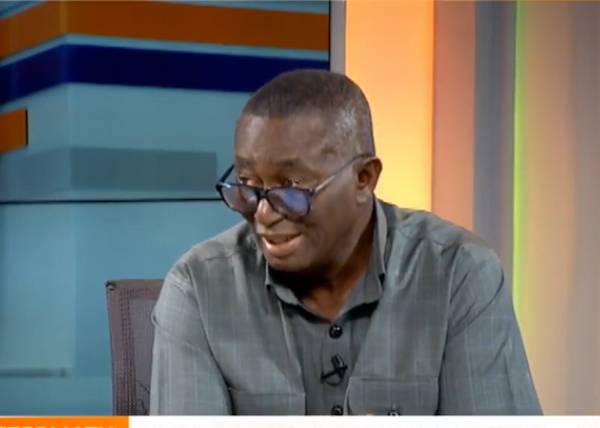Andy Appiah-Kubi, the outgoing Member of Parliament for Asante Akim North, has voiced strong allegations against his own political party, the New Patriotic Party (NPP), accusing elements within the organization of deliberately working against his political success. His revelations come in the wake of the NPP's crushing defeat in the 2024 elections, which saw the opposition National Democratic Congress (NDC) storm back to power.
Speaking on The Key Points with Alfred Ocansey on December 14, 2024, Appiah-Kubi reflected on the uphill battle he faced within his party. According to him, entrenched interests within the NPP actively undermined his efforts and contributed to the party's broader electoral struggles.
“The establishment within my own party made things difficult for me,†he stated with frustration. “It was clear they didn’t want me to succeed.â€
Appiah-Kubi further explained that certain individuals within the NPP hierarchy orchestrated efforts to derail his ambitions, particularly in the lead-up to the 2024 general elections. These internal struggles, he argued, were symptomatic of a broader culture of sabotage that plagued the party during a critical election season.
A Resounding Electoral Defeat
The 2024 elections proved disastrous for the NPP, with the NDC achieving a resounding victory. The NDC not only won the presidential election with a commanding margin of over 1.6 million votes but also secured a parliamentary majority with 185 seats.
Appiah-Kubi attributed this humiliating loss to multiple factors, chief among them the internal divisions within the NPP. “The defeat is a reflection of many factors, but one of the biggest reasons was the internal sabotage,†he remarked. “The people who should have been supporting us were the ones working against us.â€
His comments add weight to growing criticisms of the NPP's internal politics, which many analysts and party members have cited as a significant contributor to the party's downfall. Allegations of favoritism, factionalism, and lack of unity have dogged the NPP in recent years, eroding public confidence and undermining their electoral strategy.
The Cost of Party Infighting
Appiah-Kubi's revelations highlight a critical issue within the NPP: the detrimental impact of internal disputes on its political fortunes. Despite being one of the party's prominent figures, he claims he was targeted by factions more concerned with protecting their interests than securing the party's success.
These allegations are not isolated. Several other NPP members have also spoken out about the toxic environment within the party, pointing to the sidelining of competent individuals and the prioritization of personal loyalties over merit. This culture, they argue, has led to widespread dissatisfaction among party faithful and alienated the electorate.
Reflecting on his personal experience, Appiah-Kubi noted, “When a party allows infighting and sabotage to take center stage, it is the people who ultimately pay the price. We had the opportunity to consolidate our gains and continue serving Ghanaians, but we let internal politics derail our mission.â€
Calls for Reforms
The NPP now faces an uphill battle to rebuild and regain public trust. Analysts have suggested that the party must urgently address its internal divisions if it hopes to remain relevant in Ghana's political landscape. Appiah-Kubi's public criticism underscores the need for introspection and reform within the party’s leadership.
Several prominent voices within the NPP have echoed similar sentiments, calling for a comprehensive review of the party’s structures and decision-making processes. They argue that fostering unity and promoting inclusivity will be critical to the party's revival.
The NPP's future leadership will also play a crucial role in shaping its direction. With the loss of power and influence, the party will need strong, visionary leadership to navigate the challenges ahead and position itself as a credible alternative to the NDC.
The Road Ahead
As the NPP grapples with the fallout from its defeat, Appiah-Kubi’s accusations serve as a stark reminder of the consequences of disunity and internal strife. His candid remarks have sparked widespread debate, with many wondering how the party will address the underlying issues that contributed to its poor performance.
The NDC, on the other hand, is celebrating its landslide victory as a mandate to deliver on its promises and address the concerns of Ghanaians. With 185 parliamentary seats and a decisive presidential win, the party now has the opportunity to implement its policies without significant opposition.
For the NPP, the focus must shift to healing wounds and rebuilding from within. As Appiah-Kubi rightly pointed out, the party’s inability to support its own members and maintain cohesion has cost it dearly. If these issues are not addressed, the NPP risks further erosion of its political relevance in the years to come.
The 2024 elections will undoubtedly go down in history as a turning point in Ghana's political narrative. For the NPP, it is both a cautionary tale and a call to action—a reminder that unity, accountability, and inclusivity are essential for sustained success in politics.




No comments yet
Be the first to share your thoughts!